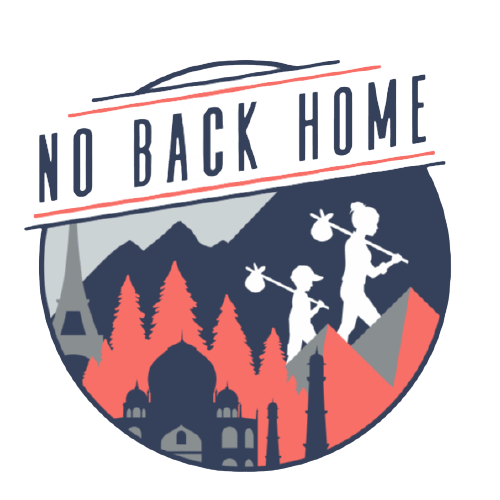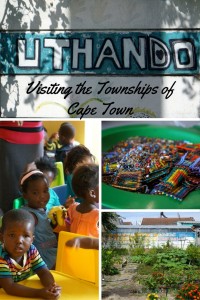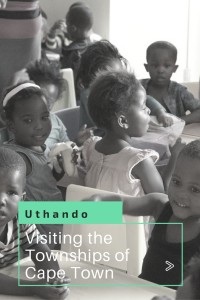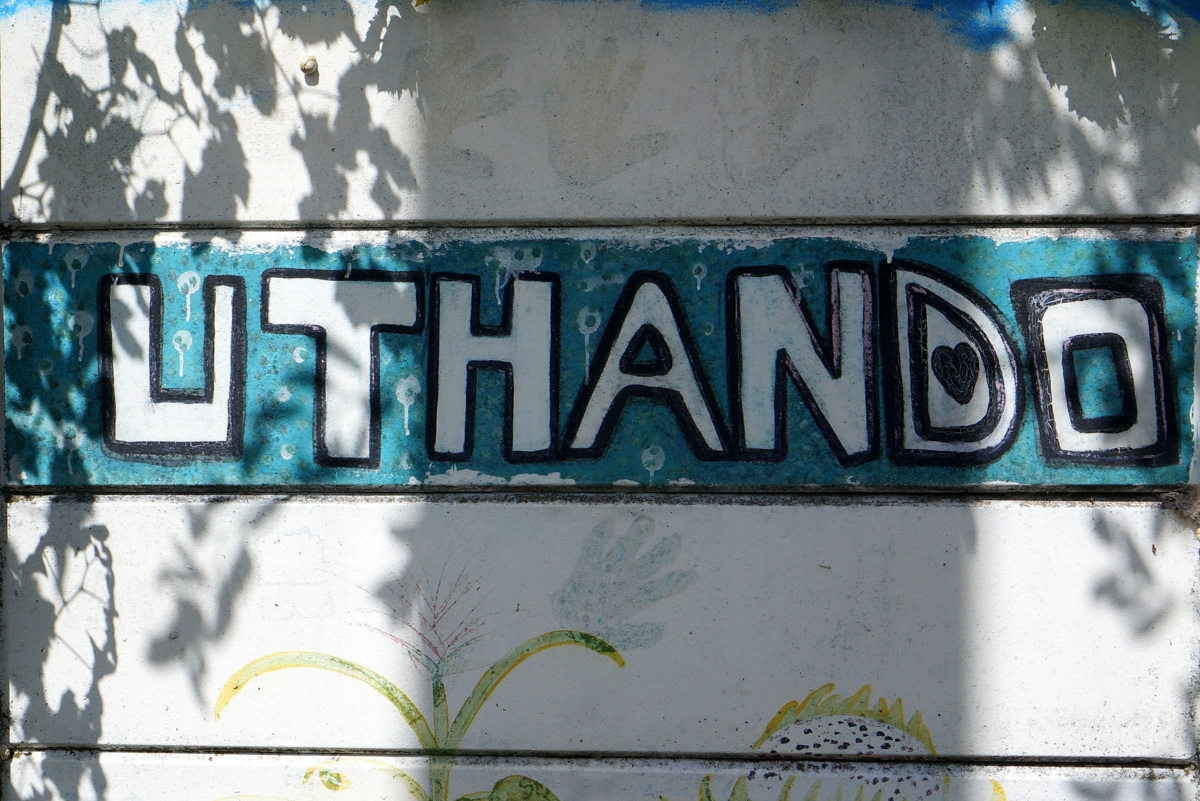 There is much controversy in the so called “poverty tours” – do they provide a learning experience or is it just a way to gawk at those less fortunate? Having lived in Mumbai working in many poor and slum communities I am particularly aware of this type of tourism and it’s many sides. In some ways, it is educational for the people visiting to actually see with their own eyes how so many people throughout the world live, survive and often thrive on so little while we in the West spend our days focusing on our “first world problems”. However, looking at the other side, would you want to be a poor person having their lives, homes and livelihoods being treated as entertainment? Probably not. Hence the dilemma for us on our recent trip to South Africa.
There is much controversy in the so called “poverty tours” – do they provide a learning experience or is it just a way to gawk at those less fortunate? Having lived in Mumbai working in many poor and slum communities I am particularly aware of this type of tourism and it’s many sides. In some ways, it is educational for the people visiting to actually see with their own eyes how so many people throughout the world live, survive and often thrive on so little while we in the West spend our days focusing on our “first world problems”. However, looking at the other side, would you want to be a poor person having their lives, homes and livelihoods being treated as entertainment? Probably not. Hence the dilemma for us on our recent trip to South Africa.
As a former non-profit worker and advocate, I was quite interested in seeing the townships of South Africa in person that I had heard about for years, however I didn’t want to just take a bus there on our own to essentially gawk at the community members. I was lucky enough to find a really great alternative that met my desire to see and experience the townships, while also not putting people and their homes on display like they live in a zoo.
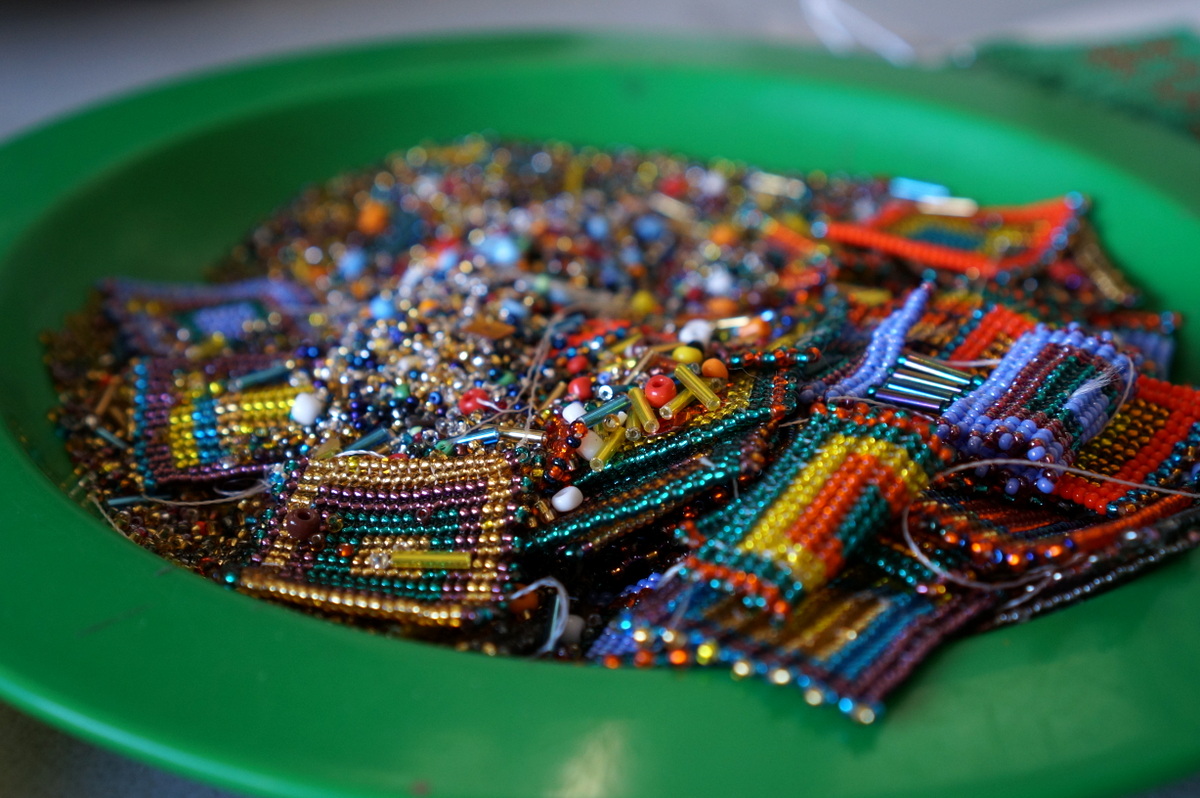 Uthando, which means love, is a non profit organization working in the townships of Cape Town, providing a unique view into communities through responsible tourism. The aim of Uthando first and foremost is to raise funds and provide additional assistance for community development projects in Cape Town. They do this through a trust set up by the founder James Fernie that is funded by a ‘service charge’ added onto South Africa travel itineraries sold by some of the largest tour operators. They also help support their work through interactive philanthropic cultural tours to the projects that Uthando funds and works with on a regular basis. It’s a win win. They are able to keep up to date with the happenings of their projects while also earning money for these projects through their tours.
Uthando, which means love, is a non profit organization working in the townships of Cape Town, providing a unique view into communities through responsible tourism. The aim of Uthando first and foremost is to raise funds and provide additional assistance for community development projects in Cape Town. They do this through a trust set up by the founder James Fernie that is funded by a ‘service charge’ added onto South Africa travel itineraries sold by some of the largest tour operators. They also help support their work through interactive philanthropic cultural tours to the projects that Uthando funds and works with on a regular basis. It’s a win win. They are able to keep up to date with the happenings of their projects while also earning money for these projects through their tours.
Regular daily tours as well as private topic specific tours run Monday to Saturday, generally from 8:30 a.m. – 1 p.m. Guests are picked up from their hotels in a small van and taken around through many different townships. Each tour is different, depending on which projects they need to visit, which projects are operating at the time of the tour, etc. You never know what you will get, but you can be guaranteed to see projects filled with love, hard work and a great deal of care.
Community Visits
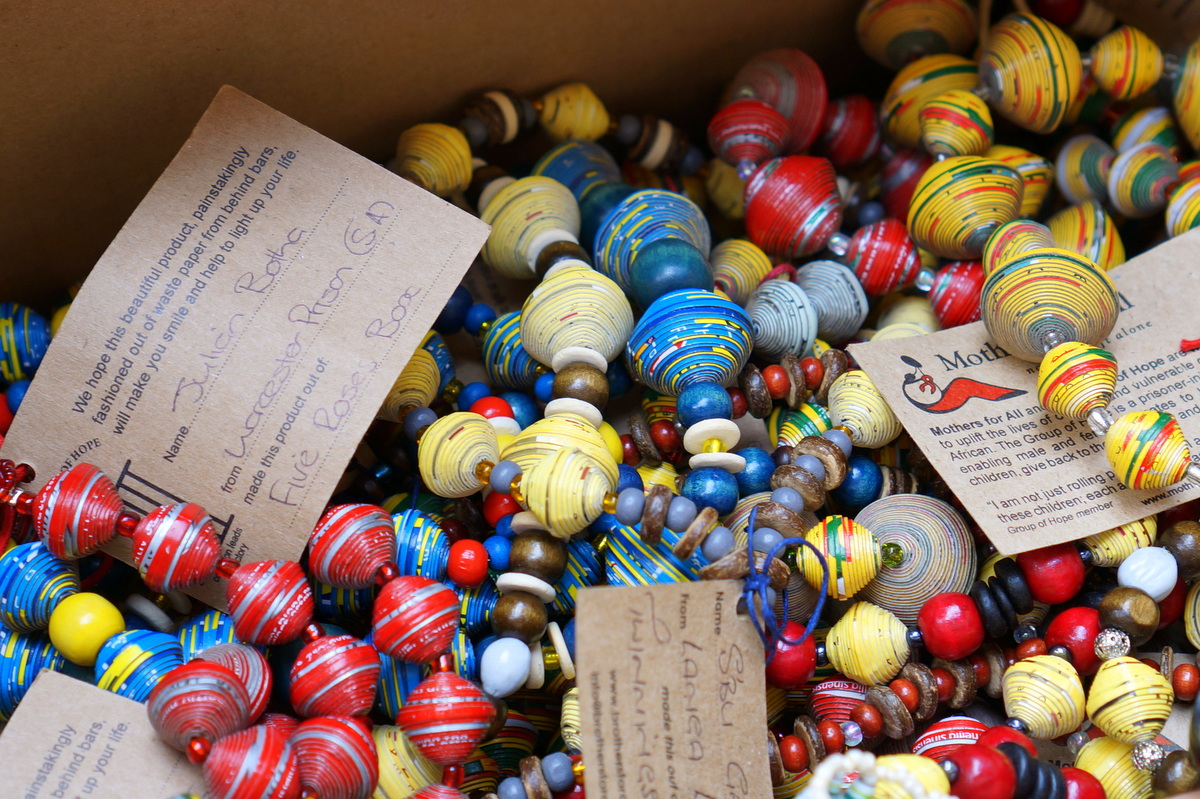 During our tour with Uthando, we visited 6 different non profit organizations located in 3 townships. This provided a great overview of the programs Uthando supports as well as giving us an in-depth view into how large and encompassing the townships are on the outskirts of central Cape Town.
During our tour with Uthando, we visited 6 different non profit organizations located in 3 townships. This provided a great overview of the programs Uthando supports as well as giving us an in-depth view into how large and encompassing the townships are on the outskirts of central Cape Town.
Our first stop was to Langa, where we visited an innovative computer coding program for ex-convicts, underprivileged, unemployed and vulnerable youth. Hearing how the co-founder of Brothers for All spent many of his years in prison for crimes that could have been prevented through employment opportunities was quite moving. Once he returned to Langa after years in jail, he vowed to make a difference, hence his computer coding teaching center.
While at the center, we also were introduced to the handicraft work produced by Mothers for All, a large scale economic empowerment project in Botswana and South Africa. My son became obsessed with attempting (I say attempting because it’s not as easy as it looks!) to make these beautiful handicrafts!
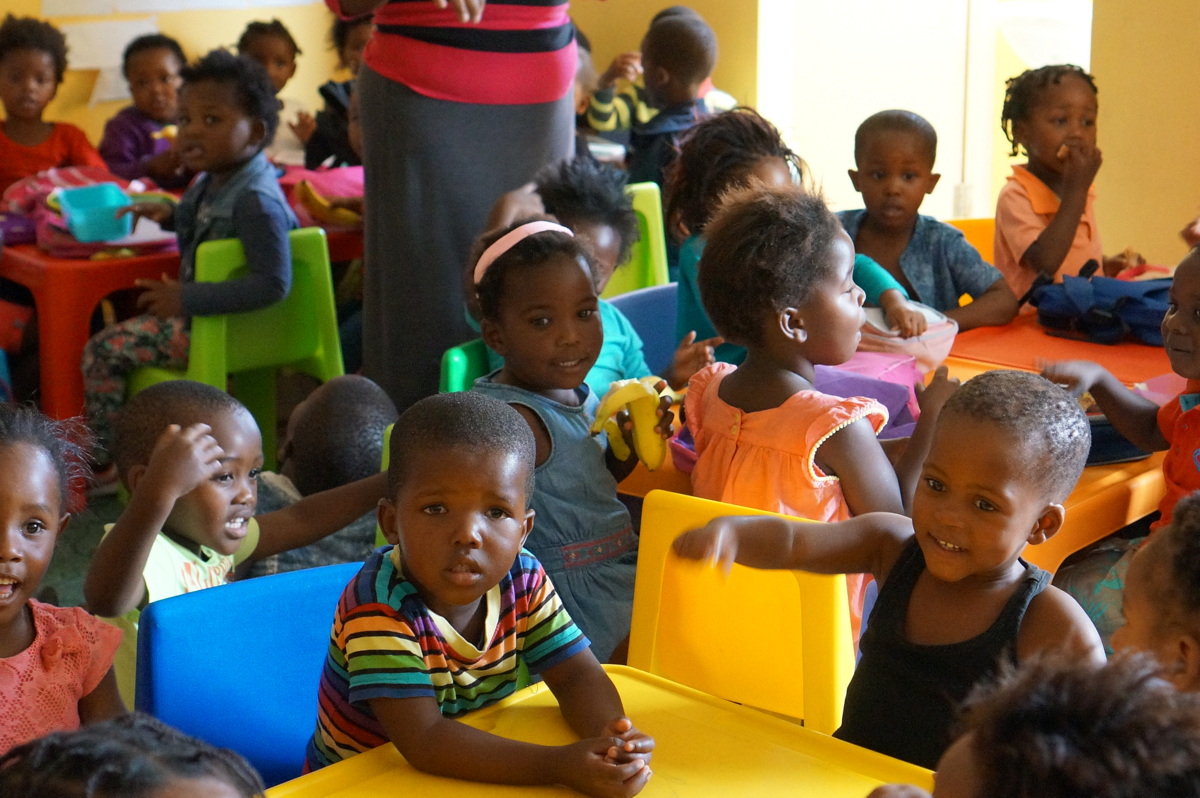 Our next stop was to the Mfuleni township and Isiseco Childcare Center. This day car center was founded by a community member when she saw how great the need was for working families to have reliable childcare. Through the help of Uthando, she has moved out the daycare out of her living room and into it’s own center.
Our next stop was to the Mfuleni township and Isiseco Childcare Center. This day car center was founded by a community member when she saw how great the need was for working families to have reliable childcare. Through the help of Uthando, she has moved out the daycare out of her living room and into it’s own center.
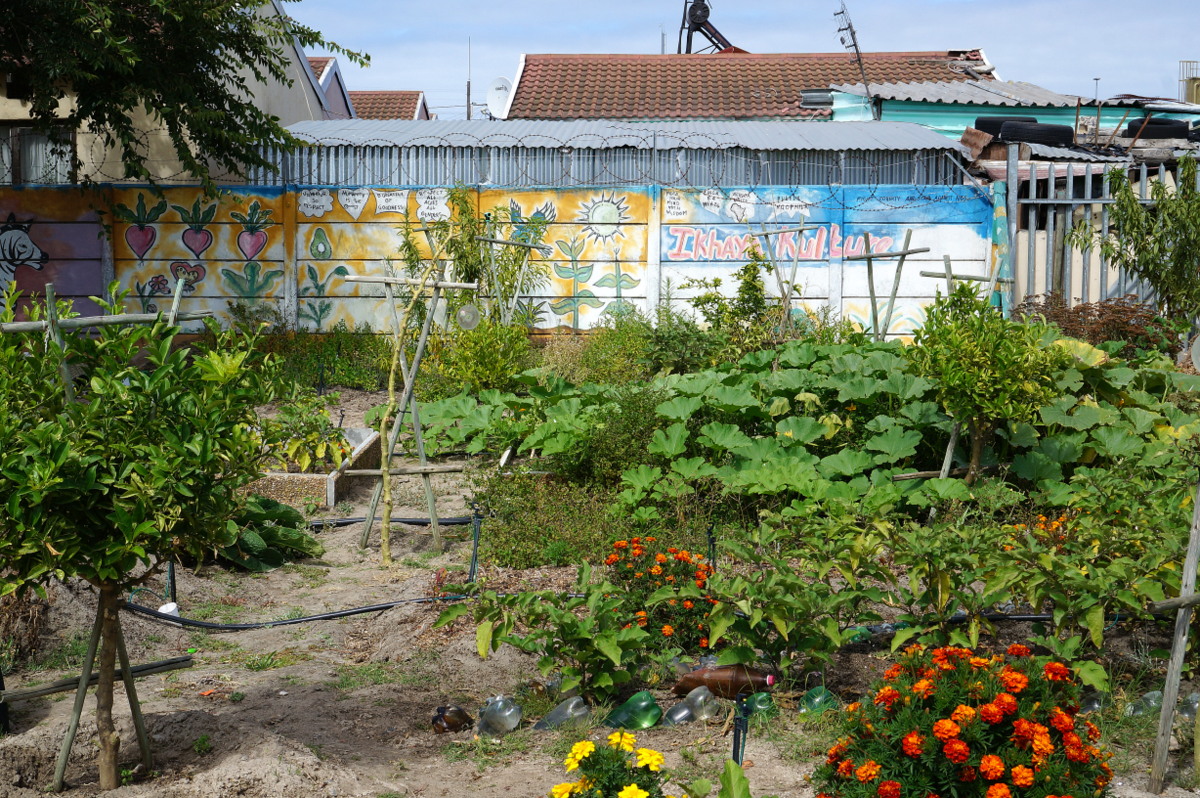 Moving on to one of the largest townships outside of Cape Town, Khayelistsha, we visited a local school where a the Ikaya Garden project has been operating. The aim of this project is to reconnect the youth to local gardening as a way to connect with their ancestors as well as be more self sustainable. The garden initiative was a huge hit with our son who already at age 5 has a passion for growing his own food.
Moving on to one of the largest townships outside of Cape Town, Khayelistsha, we visited a local school where a the Ikaya Garden project has been operating. The aim of this project is to reconnect the youth to local gardening as a way to connect with their ancestors as well as be more self sustainable. The garden initiative was a huge hit with our son who already at age 5 has a passion for growing his own food.
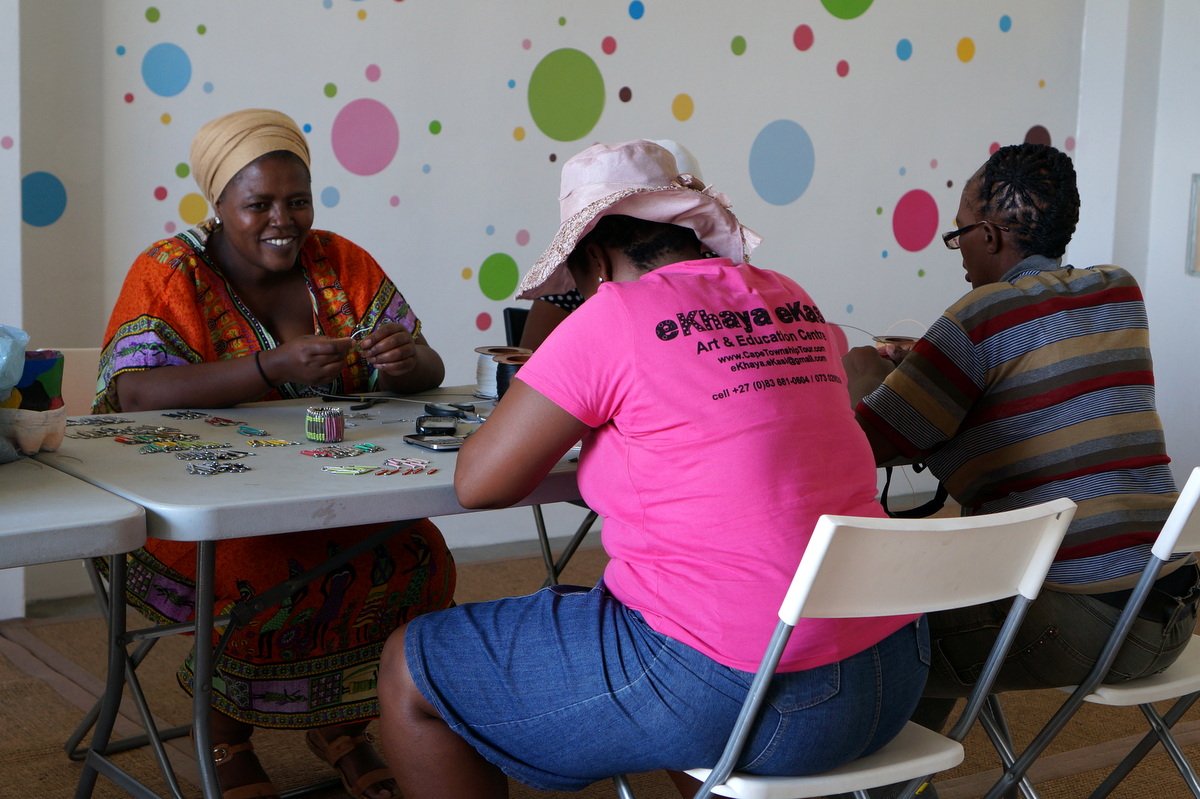 Our 5th stop of the day was also in Khayelitsha, at the eKaya eKasi Art & Education Center also known as “home in the hood”. The multi-purpose community center is run and staffed by women in the community, serving over 400 people. During our visit we were able to meet with women who were working on economic empowerment projects by making handicrafts to be sold throughout the country.
Our 5th stop of the day was also in Khayelitsha, at the eKaya eKasi Art & Education Center also known as “home in the hood”. The multi-purpose community center is run and staffed by women in the community, serving over 400 people. During our visit we were able to meet with women who were working on economic empowerment projects by making handicrafts to be sold throughout the country.
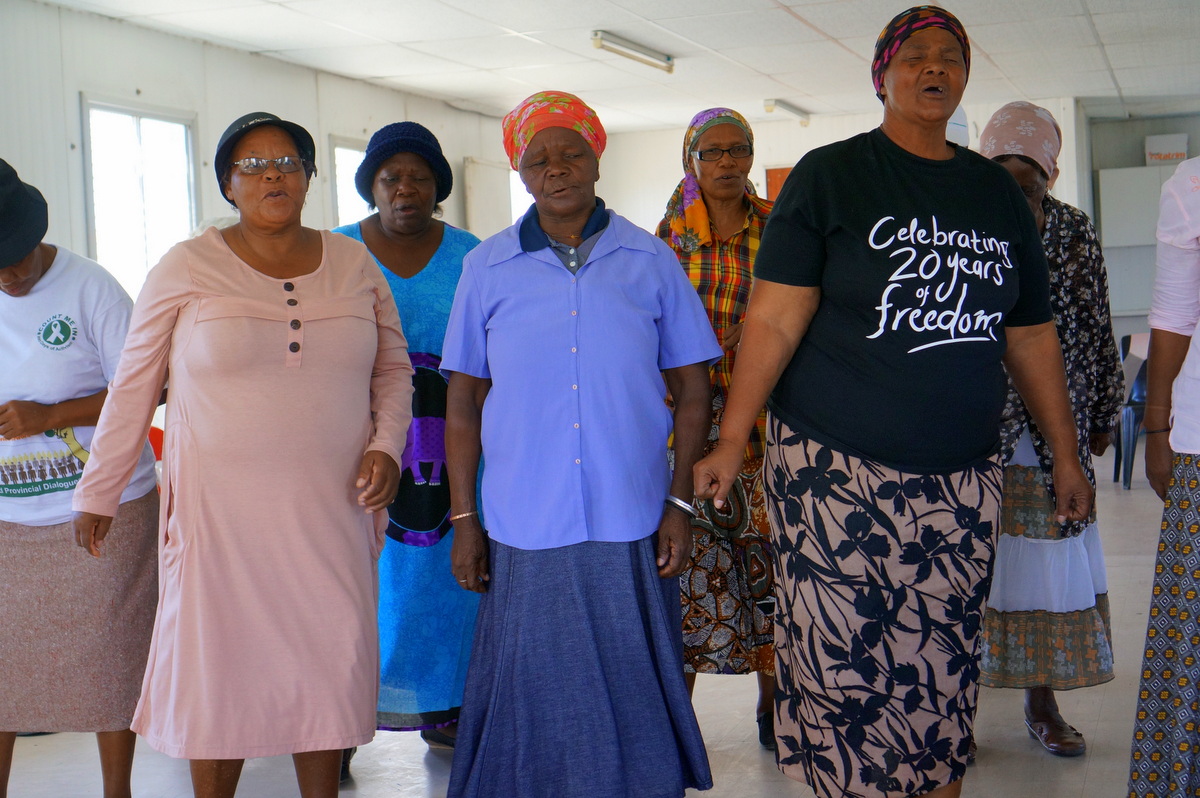 Our final visit on our tour with Uthando was to a senior citizen center. This proved to also be the most powerful and empowering visit for our family. During our visit we were instructed to sit in with the group of senior citizens who were doing morning exercises. Once they were complete with their exercises we all introduced ourselves and then broke off into small groups to chat with each other more. One of the gentleman we were placed with, Alfred, chatted to my son telling him that when he was his age, he wasn’t allowed to touch a white person’s hand, that he couldn’t be friends with a white person, etc. My son didn’t say much then, but it made a deep impression on both of us. He just couldn’t believe that a government would tell people that they couldn’t touch another persons’ hand or be friends with someone because their skin color was different. Even after 8 months, this visit and what he learned has continued to stick with him. I could have told him all I wanted about this, but hearing it from someone who lived it was much more meaningful than any history lesson would be.
Our final visit on our tour with Uthando was to a senior citizen center. This proved to also be the most powerful and empowering visit for our family. During our visit we were instructed to sit in with the group of senior citizens who were doing morning exercises. Once they were complete with their exercises we all introduced ourselves and then broke off into small groups to chat with each other more. One of the gentleman we were placed with, Alfred, chatted to my son telling him that when he was his age, he wasn’t allowed to touch a white person’s hand, that he couldn’t be friends with a white person, etc. My son didn’t say much then, but it made a deep impression on both of us. He just couldn’t believe that a government would tell people that they couldn’t touch another persons’ hand or be friends with someone because their skin color was different. Even after 8 months, this visit and what he learned has continued to stick with him. I could have told him all I wanted about this, but hearing it from someone who lived it was much more meaningful than any history lesson would be.
Conclusion
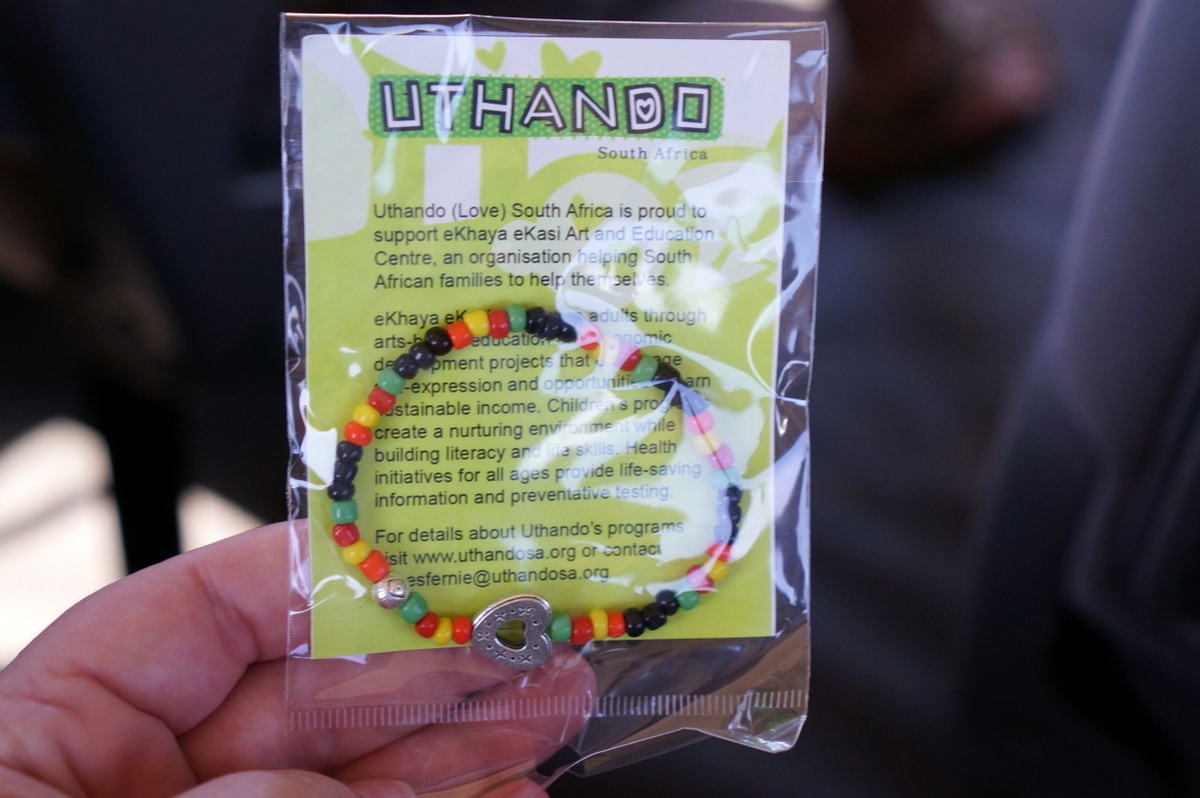 I have to say that our day with Uthando was one of our favorite days in Cape Town. It was eye opening, empowering and refreshing to see all of the positive work going on in the communities one often only see’s negative images about. It was beautiful to see my small child interact and engage with the community members during our visits, learning from them while also sharing his world as well.
I have to say that our day with Uthando was one of our favorite days in Cape Town. It was eye opening, empowering and refreshing to see all of the positive work going on in the communities one often only see’s negative images about. It was beautiful to see my small child interact and engage with the community members during our visits, learning from them while also sharing his world as well.
If you want to truly engage and experience the townships of South Africa, we highly recommend this tour. You will not only be witnessing change in action, but your tour fee’s will directly help support these wonderful programs. You will walk away from the experience feeling pride and love for all that the township communities are doing rather than pity for all they don’t have. For more information or to sign up for a tour, visit Utahando’s website.
Have you visited a township in South Africa? What was your experience like?
If You Enjoyed This Post, Sign Up To Receive Posts By Email or...
